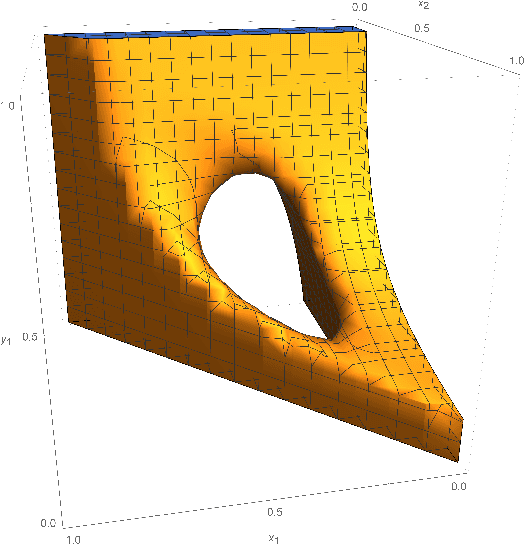Kelly Spendlove
Nash, Conley, and Computation: Impossibility and Incompleteness in Game Dynamics
Mar 26, 2022


Abstract:Under what conditions do the behaviors of players, who play a game repeatedly, converge to a Nash equilibrium? If one assumes that the players' behavior is a discrete-time or continuous-time rule whereby the current mixed strategy profile is mapped to the next, this becomes a problem in the theory of dynamical systems. We apply this theory, and in particular the concepts of chain recurrence, attractors, and Conley index, to prove a general impossibility result: there exist games for which any dynamics is bound to have starting points that do not end up at a Nash equilibrium. We also prove a stronger result for $\epsilon$-approximate Nash equilibria: there are games such that no game dynamics can converge (in an appropriate sense) to $\epsilon$-Nash equilibria, and in fact the set of such games has positive measure. Further numerical results demonstrate that this holds for any $\epsilon$ between zero and $0.09$. Our results establish that, although the notions of Nash equilibria (and its computation-inspired approximations) are universally applicable in all games, they are also fundamentally incomplete as predictors of long term behavior, regardless of the choice of dynamics.
Exploration-Exploitation in Multi-Agent Competition: Convergence with Bounded Rationality
Jun 24, 2021



Abstract:The interplay between exploration and exploitation in competitive multi-agent learning is still far from being well understood. Motivated by this, we study smooth Q-learning, a prototypical learning model that explicitly captures the balance between game rewards and exploration costs. We show that Q-learning always converges to the unique quantal-response equilibrium (QRE), the standard solution concept for games under bounded rationality, in weighted zero-sum polymatrix games with heterogeneous learning agents using positive exploration rates. Complementing recent results about convergence in weighted potential games, we show that fast convergence of Q-learning in competitive settings is obtained regardless of the number of agents and without any need for parameter fine-tuning. As showcased by our experiments in network zero-sum games, these theoretical results provide the necessary guarantees for an algorithmic approach to the currently open problem of equilibrium selection in competitive multi-agent settings.
 Add to Chrome
Add to Chrome Add to Firefox
Add to Firefox Add to Edge
Add to Edge